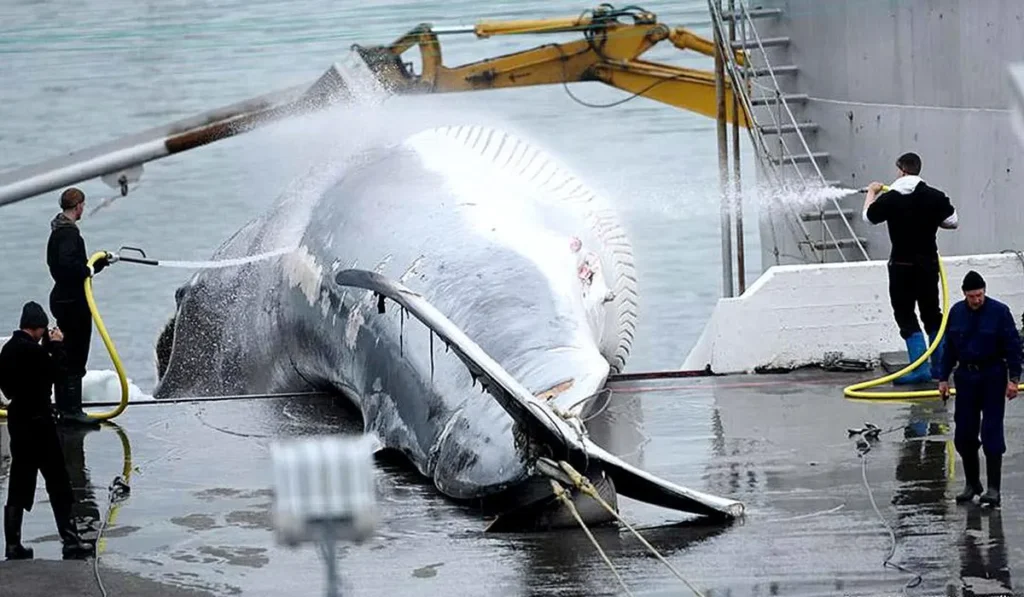Japan has killed its first fin whale in years, despite most of the world strongly opposing the decision.
Iwate Prefecture, Japan
8th August, 2024.
In a controversial move that has ignited global condemnation, Japan has killed its first fin whale in over a decade. The male fin whale, measuring 19.6 meters (64 feet) in length and weighing 55 tonnes, was captured off the coast of Iwate Prefecture by the whaling company Kyodo Senpaku.
Japan’s decision to resume hunting fin whales follows the Ministry of Agriculture, Forestry, and Fisheries’ recent announcement of a new quota allowing the capture of up to 59 fin whales. This decision is in addition to existing quotas for minke, Bryde’s, and sei whales. Conservation groups and the international community have strongly opposed this move, arguing that fin whales, still vulnerable to extinction, should be protected.
The international response has been one of sharp criticism. Catherine Bell, Director of International Policy at the International Fund for Animal Welfare, condemned Japan’s actions, stating, “The fin whale is the second largest animal on earth. Putting it in the gunsights in 2024 is a big mistake for Japan, for whales, and for the international community working to protect them.”OceanCare, a marine conservation organization, also voiced strong disapproval, emphasizing the cruelty and ecological impact of whaling. They highlighted the inhumane nature of killing whales at sea and expressed deep concerns about the welfare implications of such hunts.

Japan has defended its decision by claiming that fin whale populations in the North Pacific have sufficiently rebounded to allow for sustainable hunting. Japanese officials argue that their practices are in line with conservation efforts and that they are conducting hunts within legally established quotas. However, this claim has been widely disputed by marine biologists and conservationists who maintain that the species remains at risk and should be safeguarded.
The killing of the fin whale is part of a broader and ongoing debate about Japan’s whaling practices. Despite a 2014 International Court of Justice ruling that ordered Japan to cease its Antarctic whaling program, Japan has continued to pursue whaling activities within its territorial waters. The recent event has reignited discussions about the ethics and sustainability of whaling in the modern era and highlights the persistent conflict between traditional practices and conservation efforts.

Japan’s recent action has reignited international debates about the ethics and impact of whaling. As global scrutiny increases, the future of fin whales remains uncertain, hinging on international cooperation and a commitment to sustainable practices. The ongoing struggle between preserving marine life and respecting traditional practices underscores the need for continued global dialogue and action.
Resources:
1.https://www.iflscience.com/japan-kills-its-first-fin-whale-after-controversial-new-quota-75425
2.https://www.marinelink.com/news/japan-kills-first-fin-whale-commercial-515669
3.https://www.theinertia.com/news/japan-fin-whale-hunting-first-kill/
4.https://www.oceancare.org/en/stories_and_news/japan-kills-first-fin-whale/